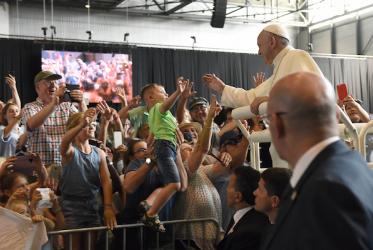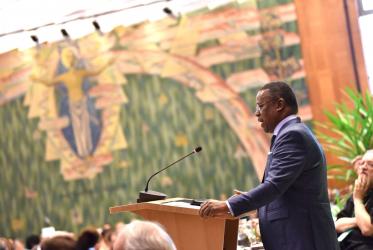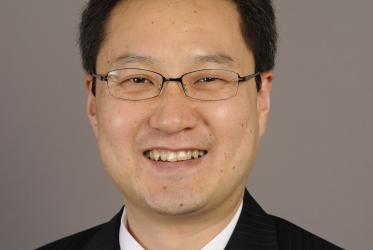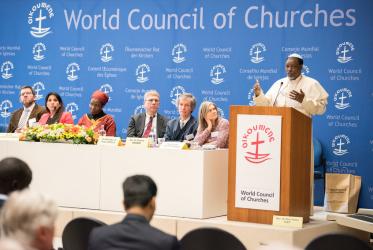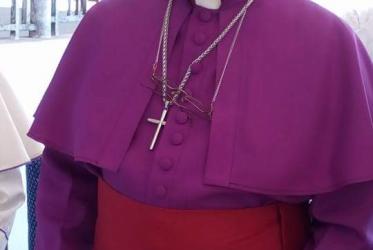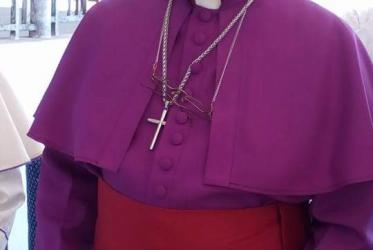Displaying 161 - 180 of 437
Pope Francis at Palexpo: “I will pray for you”
25 June 2018
Fellow pilgrims share stories of transformation
18 June 2018
Christianity and human rights in multi-faith Nigeria
29 January 2018
Ecumenical Centre, Visser’t Hooft Hall (Main Hall)

